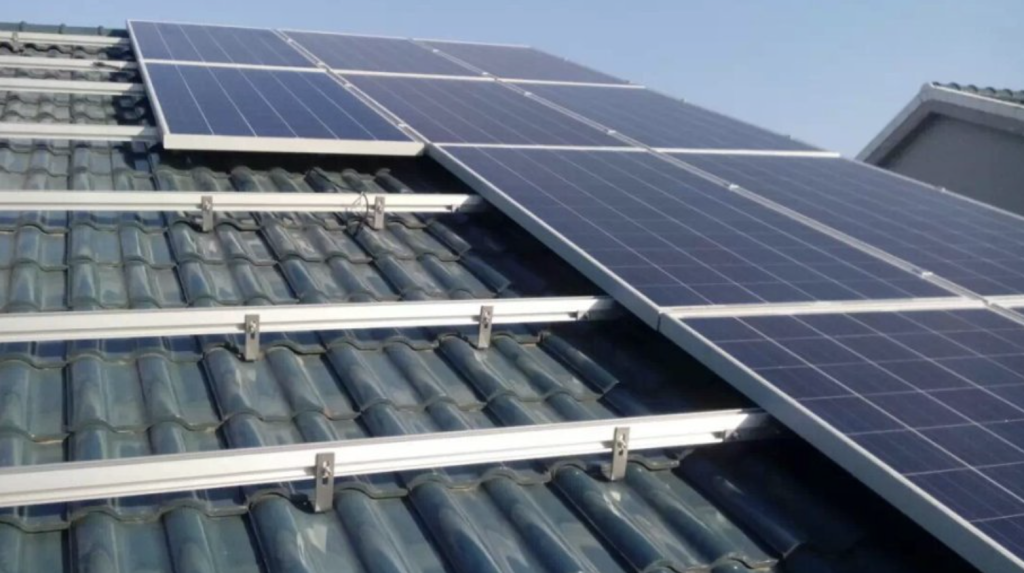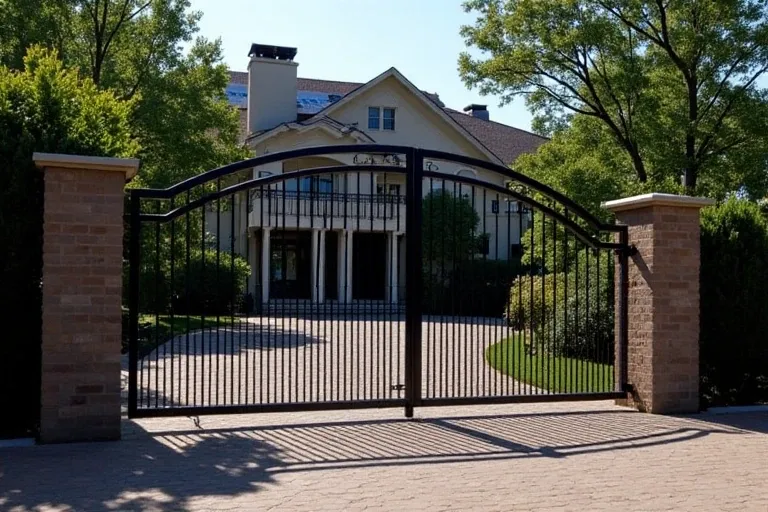Steel or Aluminium Frames for Solar Panels? Expert Guide to Choose the Right Material

Solar panel frames provide structural support and protect the panels from wind, rain, and physical impact.
Steel frames offer strong support and lower upfront costs. Aluminium frames weigh less and resist corrosion, making them suitable for rooftops and coastal areas.
Your choice of frame material affects installation, maintenance, and system lifespan. Select the option that matches your project’s location and budget for the best results.
What Are Solar Panels Made Of?
Solar panels use several key layers. Each layer has a specific function.
- Solar Cells: Crystalline silicon cells absorb sunlight and generate electricity. Silicon offers high efficiency and wide availability.
- Glass Cover: Tempered, clear glass protects the cells from weather and debris. It allows maximum sunlight to reach the cells.
- Encapsulant (EVA): Ethylene-vinyl acetate holds the cells in place and blocks moisture. It cushions the cells against impact.
- Backsheet: PET or Tedlar plastic forms a barrier at the back. It shields the panel from water, dust, and UV rays.
- Frame: Aluminium or steel frames support the structure. They provide mounting points and protect against wind and snow.
- Junction Box: The box on the back contains wires and diodes. It connects the panel to the electrical system and prevents electrical damage.
Each part works together to convert sunlight into reliable power. A strong frame and intact glass keep the system safe and efficient.
Material Breakdown Example (Monocrystalline Panel):
| Material | Function |
|---|---|
| Silicon | Solar cells (energy conversion) |
| Aluminium | Frame (structural support) |
| Tempered Glass | Top cover (protection, transparency) |
| EVA | Encapsulant (adhesion, protection) |
| PET/Tedlar | Back sheet (insulation, protection) |
| Copper, Silver, Tin, Lead | Wiring and soldering |
Why Frame Material Matters in Solar Panels?
The frame affects panel strength, weather resistance, installation, and lifespan. The frame holds the glass and cells in place, keeping the panel rigid under wind and snow. It blocks water, hail, and debris; a weak or corroded frame can let moisture reach the cells and cause damage.
Frames provide mounting points that impact installation. Aluminium frames reduce weight, making them ideal for rooftops, while steel frames add strength for ground-mounted systems. The right material resists rust and damage—aluminium lasts longer in salty air, while steel works well for large, land-based arrays.
Choose a frame that matches your site conditions. This decision protects your panels and lowers long-term costs.
Aluminium Frames for Solar Panels

Pros
Aluminium frames weigh less than steel, which makes transport and rooftop installation easier and faster. They resist corrosion by forming a protective oxide layer that blocks moisture and salt, making them ideal for coastal and humid environments.
Aluminium offers a high strength-to-weight ratio, supporting wind and snow loads without adding extra weight. The material conducts electricity, which helps with grounding and lightning protection.
Aluminium frames also come in various finishes and colors, allowing for more design flexibility. They are highly recyclable, and recycling uses 95% less energy than producing new aluminium.
Cons
Aluminium frames cost more upfront than steel frames. In rare cases, exposure to harsh chemicals or industrial pollution can reduce their lifespan. While they require less maintenance, the higher initial price may not fit every project’s budget.
Best For
Aluminium frames work best for rooftop solar systems, coastal regions, and projects that need low weight and strong corrosion resistance.
They suit installations where easy handling, long service life, and a modern appearance are priorities.
Steel Frames for Solar Panels
Pros
Steel frames support heavy loads and perform well in large ground-mounted solar farms, especially in areas with strong winds or heavy snow.
Steel costs less than aluminium, which lowers upfront expenses for utility-scale projects. Manufacturers can shape steel into complex or heavy-duty frame designs, allowing for custom solutions on unique sites.
Cons
Steel frames weigh more than aluminium, which increases transport and installation costs. These steel metals can rust if not properly coated or galvanized, so wet or coastal sites require regular inspection and maintenance.
The metal steel also conducts heat less efficiently than aluminium, which can lead to higher panel temperatures and reduced efficiency in hot climates.
Best For
Steel frames are best for large ground-mounted solar farms, sites with high wind or heavy snow, and projects where low material cost is a priority.
Comparative Table: Aluminium vs. Steel Frames
| Feature | Aluminium Frame | Steel Frame |
|---|---|---|
| Weight | Lightweight, easy to install | Heavy, more structural load |
| Strength | High strength-to-weight ratio | Superior absolute strength |
| Corrosion Resistance | Excellent, especially anodized | Variable; needs coatings for protection |
| Durability | 25+ years, low maintenance | High, especially with protective coatings |
| Cost | Higher upfront, lower long-term costs | Lower upfront, possible higher maintenance |
| Environmental Impact | Highly recyclable, energy-intensive | Lower carbon footprint if recycled |
| Thermal Conductivity | Excellent (aids heat dissipation) | Lower (may affect cooling) |
| Aesthetics | Customizable finishes and colors | Industrial look, less customizable |
Application Scenarios: Which Frame Fits Your Project?
Rooftop solar systems work best with aluminium frames. The low weight reduces roof stress and simplifies installation. Aluminium resists corrosion, so panels last longer with less maintenance.
Large ground-mounted and utility-scale projects often use steel frames. Steel supports heavy loads and costs less than aluminium. Weight is not an issue on the ground, so steel’s strength and price make it a practical choice for big solar farms.
Coastal and high-humidity areas demand frames that fight rust. Aluminium’s oxide layer protects against salt and moisture, while steel can corrode quickly if not coated. Most oceanfront and tropical installations use aluminium for this reason.
Sites with high wind or heavy snow need strong frames. Steel delivers the extra support needed to keep panels stable. However, steel frames require coatings and regular checks to prevent rust.
Choose a frame material that matches your site conditions and project goals. The right choice protects your panels and maximizes long-term performance.
Cost Considerations and Lifecycle Value
Steel frames cost less than aluminium frames at purchase. This lowers initial project expenses, especially for large solar farms. However, steel frames need regular inspection and recoating to prevent rust. Maintenance costs add up over time, especially in wet or coastal areas.
Aluminium frames cost more upfront. Their lighter weight reduces labor and shipping costs. Aluminium resists corrosion, so panels need less maintenance and last longer in harsh climates. Rooftop systems in coastal cities often use aluminium to avoid costly repairs.
Total cost of ownership depends on both the initial price and ongoing maintenance. Steel may seem cheaper at first, but frequent upkeep can increase long-term costs. Aluminium costs more at the start but often saves money over the system’s life through lower maintenance.
Choose a frame material that matches your budget, site conditions, and maintenance preferences. This choice protects your investment and supports reliable solar panel performance.
Industry Insights and Case Studies
Most residential rooftop solar projects use aluminium frames. Installers prefer aluminium because it is light, easy to handle, and resists corrosion. For example, homes in Miami use aluminium frames to withstand humidity and salt air with minimal maintenance.
Large utility-scale solar farms often use steel frames. Project managers choose steel for its strength and lower cost. A solar farm in the Midwest may use steel frames to support long rows of panels and meet budget goals.
Coastal installations require materials that resist rust. Aluminium frames work best in these areas because their oxide layer protects against salt and moisture. Solar arrays on the California coast rely on aluminium to avoid frequent repairs and extend panel life.
These examples show how frame material choices depend on site conditions, project size, and maintenance needs. The right frame supports reliable solar power and reduces long-term costs.
How to Choose the Right Frame Material?
Location affects frame choice. Aluminium resists salt and moisture, making it ideal for coastal and humid climates. Steel suits inland or dry areas but needs coatings in wet conditions.
Project size influences material. Aluminium suits rooftops and residential systems due to its lightweight. Steel fits large or utility projects with its strength and lower cost.
Budget impacts decisions. Steel costs less upfront, helping tight budgets. Aluminium costs more initially but saves on maintenance and lasts longer.
Maintenance matters. Aluminium requires less upkeep. Steel needs regular checks and recoating to prevent rust in harsh environments.
Environmental goals count. Both materials recycle well, but aluminium recycling uses less energy. Choose frames with high recycled content for sustainability.
Match these factors to your project. The right frame protects your investment and ensures reliable solar power.
Frequently Asked Questions (FAQs)
Both can last 25+ years, but aluminium generally requires less maintenance in harsh environments.
For rooftop, coastal, or low-maintenance projects, yes. For large ground-mounted farms, steel may be more cost-effective.
Yes. Both steel and aluminium are highly recyclable, supporting sustainable solar energy.
These are less common, with variable performance and durability, and are generally not used for high-performance or large-scale installations.
Final Thoughts
Choose steel or aluminium frames based on your project’s location, size, and goals. Aluminium resists corrosion, weighs less, and installs easily. It suits residential and commercial rooftops, especially in humid or coastal areas.
Steel offers high strength and lower upfront costs for large ground-mounted solar farms. It needs regular maintenance to prevent rust, especially in wet regions. For example, many Midwest utility projects use steel to balance strength and budget.
Consider your priorities. Do you want to lower upfront costs, reduce maintenance, or extend durability? Consult manufacturers to match frame material with site conditions and performance needs. The right choice protects your investment and ensures reliable solar power.







